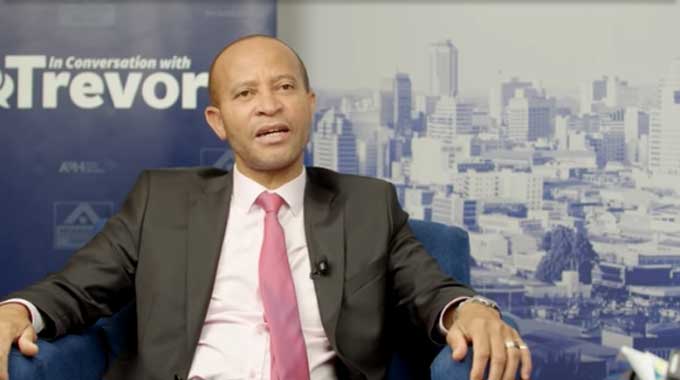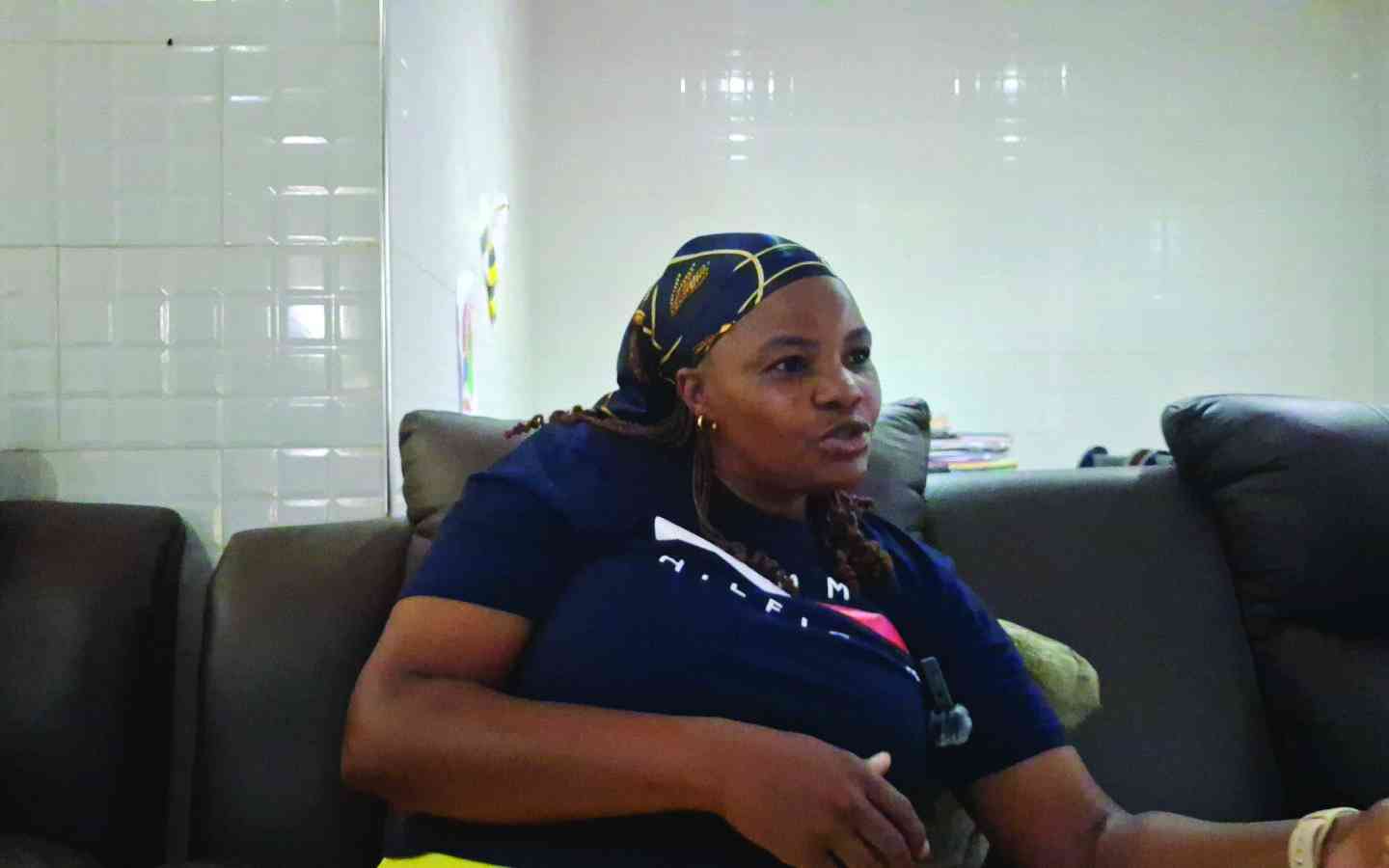
Former Zimbabwe Securities & Exchange Commission chief executive Tafadzwa Chinamo has spoken of the challenges he faced in efforts to modernise the country’s capital markets in his decade at the helm of the organisation.
Chinamo (TC) told Alpha Media Holdings chairman Trevor Ncube (TN) on the platform In Conversation with Trevor that the Zimbabwe Stock Exchange was among the last exchanges to automate its trading processes because of resistance from players.
In a wide-ranging interview, he shared his thoughts about the development of Zimbabwe’s capital markets and things that can be done differently.
Below are excerpts from the interview.
TN: Mr Tafadzwa Chinamo, welcome to In Conversation With Trevor.
TC: Thank you for Trevor, it is such a privilege and honour to be here. Thank you.
TN: So, you are the former chief executive of the Securities & Exchange Commission of Zimbabwe. You have just stepped down. What is it like to be without a job?
TC: I think it is interesting, it is a new space.
- Chamisa under fire over US$120K donation
- Mavhunga puts DeMbare into Chibuku quarterfinals
- Pension funds bet on Cabora Bassa oilfields
- Councils defy govt fire tender directive
Keep Reading
It is something that one does not really plan for.
Like if it is a new job, you are looking forward to the job, but stepping down I think when it finally happens, is a different space.
I am sort of finding my way, but I like it all the same, it is good.
TN: You are finding your way. I have been trying to get you to come on the conversation and it was not easy, sounds like you still have a diary?
TC: I thought I would actually be resting.
I had said to myself because it was such a stressful job, there was not much time to rest, there was always something going on.
Your mind is on the job seven days a week, so I thought that come the 1st of February this year, I would wake up and it would all just vanish and I would just have all the time to myself.
It has not been like that.
At the moment I am torn between going back to formal employment or going out on my own.
I think in that discovery or navigating that path this is where again I find myself drawn to so many things.
There are just so many things that I could possibly do, and I hope that I do make the right choice sooner rather than later.
TN: It cannot be an easy space to be in? I think there is tension there?
Do I go on my own, or do I go back to the corporate world? What is your thinking process like? Can you take us into that space?
TC: I think all my working life I have been in the corporate world.
I have worked in the financial services industry ever since I left university.
It is an area I think I am comfortable with, I am happy with, but also one gets a sense that personally anyway, that I have done my bit, especially in the last 10 years with the Securities & Exchange Commission.
It really was a slog.
I feel that maybe I do not have the sort of energy that I had 10 years ago when I took on this job.
I do not think I would be doing the next job justice, I do not think that I have the same sort of stamina and resolve to undertake a huge responsibility of the nature of the Securities & Exchange Commission.
However, you never know with these things, it depends with the opportunity obviously and the challenges I am presented with.
I love challenges, I like taking on things that seem impossible. That is really what gets me going, that is what drives me.
TN: So, as you leave the Securities & Exchange Commission, and when you look back, are there things you look back and say oh I wish I could rewind and redo this?
Are there areas that you regret having done?
TC: I cannot say regret, maybe it is a bit a strong a word, but doing things differently certainly.
I think for me first of all is that, when people look at the Securities & Exchange Commission they look at someone whose position it is to solve all the problems of the capital markets.
I think it is a reasonable expectation.
That is what structurally, if you look at the hierarchy of the capital markets, the Securities & Exchange Commission is at the apex of that.
So, whatever happens underneath it, certainly the Commission is accountable for that.
The regret that I have, or things that we should have done more vigorously and I guess pushed a bit more was to put the Commission in a position that it was in charge of the entire space.
What do I mean by that? When the Act establishing the Commission was promulgated, it covered everything else within that space except one group of players who in my view are the most important, who are the issuers of securities, so your listed companies.
So, they do not fall directly under the purview of the Securities & Exchange Commission which is a problem, because when you look at the mandate of the Securities & Exchange Commission, the first thing that they talk about is investor protection.
Now, you only protect an investor, or rather, the only person who stands to abuse or to do wrong against an investor invariably is the issuer.
TN: State entity.
TC: Yes, because the relationship is simply that, if you look at the capital markets, really if you just break it down, you have got investors with capital and companies that want that capital, everybody else just brings these two together.
So, the risk that an investor faces is with the person to whom they have given their money, but if those people are not accountable in terms of how they report to the investors, or even any if the things that they do, they do not report directly to the Commission.
I think that for us has always been a problem.
TN: Was that deliberate? What was the thinking behind excluding the listed entities from the purview of the Act?
TC: I think when you go back and you really say how did it come to that? I think it is good to go back a little bit and see what the market was like before the Commission was there.
TN: Okay.
TC: You had a Stock Exchange; there was at the time the Zimbabwe Stock Exchange Act of 1974, which essentially made the Stock Exchange the regulator of the capital markets.
I think in a lot of minds that situation was working, there was no need to change that.
There are one or two places in the world where that sort of happens.
I think South Africa is one which is actually an anomaly in the new world order of things.
I think, yes it was because of that also.
You may recall, if you go back 10-12 years ago, when the Commission itself was established there was that sort of resistance from the establishment that: ‘no what are these guys doing here’?
I guess if you put that into context then maybe there was that thinking that you know I think things are fine, why don’t the Commission come and regulate all the other players except the issuers.
So the issuers, they would be regulated by the listing rules of the Zimbabwe Stock Exchange, but these are rules that are being overseen by a private company, and there is so much in terms of sanction that a private company can institute against misconduct of people.
It is like you and your bank; your bank cannot take you to jail for overdrawing your account or something or things like that.
So, at some point you now need a force of law to ensure that players within that space are accountable to that piece of legislation, which did not happen.
So, because of that, I would say that all the shortcomings we had as a Commission was because of that.
TN: Talk to me about the tension that clearly existed and was loud, between the Commission and the Stock Exchange? What was behind that?
TC: I think it is just natural Trevor, and Zimbabwe is not unique in that sort of situation.
In most countries, if you look at the biggest market of all the United States. The SEC there came into being I think in 1932, but the New York Stock Exchange and all the capital markets had been around long before that.
TN: Right.
TC: It was a realisation again because of that, that you need a government body with legislative powers to stamp authority and order into that market.
Again, when you then bring a regulator into a space where the players believe that things are fine, it is never going to be easy.
So, I think it was only natural that the tension was there, because of that also, that the Commission had no direct authority over issuers.
Whenever things were grey, they would hide behind the Zimbabwe Stock Exchange, and the Commission really could not do much.
It could, I guess, shutdown the Exchange, but then what good would that do?
There were two centres of power there, the Stock Exchange and the Commission.
The Commission was obviously new, whereas the Exchange had the relationships with all the other players.
TN: Were there specific issues? What were the niggling issues? One or two issues that were problematic?
TC: I think it was just fear that someone else was going to be in charge.
It is like two bulls in a kraal, there is going to be tension.
Even if you accept that the Commission must be there, just that fear that so what happens to me?
What if they do this and do that? I think that is what really brought it about.
TN: One thing that I have found, correct me of I am wrong here, the delay to embrace automation as far as the market is concerned, what was behind that and what is the status right now?
- As you leave are you in a happy place as far as automation is concerned, but in the first instance why the resistance?
TC: Again Trevor, old habits die hard. When I joined the Commission in 2011 we were probably the last notable Stock Exchange that was not automated.
We still had our brokers going and sitting around a table and do call over.
Now for them it worked, you know.
I guess also when you look back a lot of the bromine firms were run by people who were quite senior, both in terms of age and just knowing everything.
For them to shift easily into this electronic age was always going to be a problem.
So, this is something that the Commission literally had to force the market to do, and it had to come unfortunately in stages.
First, we started with the central securities depository, where all the paper files or rather certificates were converted into electronic form if you wanted to trade on the market.
Then a year or two after that, the Exchange itself automated.
I think as far as that is concerned we have achieved it, but if you look at modern capital markets today, I think what we have is just the basic model.
There is so much more that we are not doing.
So, if I look at the interface between an investor and the markets, in most countries it is all electronic, it is via tablets, via smartphones and so forth.
Brokers themselves have also invested heavily in IT infrastructure which has not happened in this country.
With the coming on board of C-Trade, I think that was a good platform, where via your mobile phone and EcoCash you could actually create an account and trade on the market.
A few years later the ZEC came up with its own ZEC Direct, but these are the things that the intermediary players, mainly the brokers should have done themselves.
Their platforms should have enabled you as a client or a broker.
- “In Conversation With Trevor” is a weekly show broadcast on YouTube.com//InConversationWithTrevor. Please get your free YouTube subscription to this channel. The conversations are sponsored by Nyaradzo Group.










